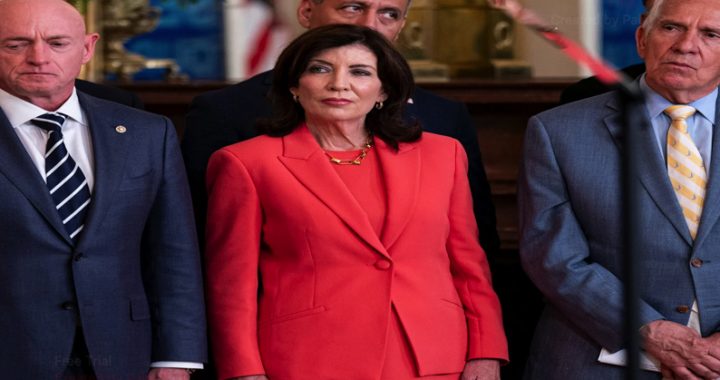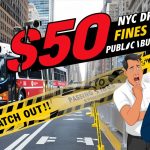Governor Kathy Hochul’s recent decision to indefinitely pause congestion pricing in New York City has sparked a flurry of debate and speculation. Congestion pricing, designed to reduce traffic in Manhattan’s busiest areas by charging drivers a fee, has been hailed as a progressive step towards addressing urban congestion and environmental concerns. However, the abrupt halt raises questions about the political motivations underlying this decision, especially with elections just four months away.
The Background of Congestion Pricing
Congestion pricing was set to be a groundbreaking policy aimed at mitigating the severe traffic issues plaguing Manhattan. The plan, initially approved by the state legislature in 2019, intended to charge drivers entering the busiest parts of Manhattan during peak hours. The revenue generated would fund much-needed improvements to the city’s public transportation system, promising a win-win scenario for both environmental sustainability and urban mobility.
Governor Hochul’s Decision
Governor Hochul’s announcement to pause the implementation of congestion pricing indefinitely came as a surprise to many. Officially, the reason given for the delay was to allow for further studies and public consultations to address concerns from various stakeholders, including businesses, residents, and commuters. However, critics argue that this decision is heavily influenced by political considerations, particularly in the context of the upcoming elections.
Political Considerations
- Electoral Calculations**: With elections just four months away, Governor Hochul may be wary of alienating suburban and outer-borough voters who drive into Manhattan and view congestion pricing as a financial burden. By pausing the plan, she potentially avoids backlash from this significant voter base, which could affect the election outcome.
- Pressure from Interest Groups**: Various interest groups, including business associations and transportation unions, have voiced strong opposition to congestion pricing. These groups are influential and have the power to sway public opinion and campaign contributions. Governor Hochul’s decision may reflect a strategic move to maintain support from these powerful entities during the election period.
- Economic Concerns**: The economic impact of the COVID-19 pandemic has been profound, particularly on small businesses in New York City. Pausing congestion pricing can be seen as an effort to support these businesses as they recover from the economic downturn, aligning with a broader political narrative of economic revitalization that could be advantageous in the upcoming elections.
- Intra-Party Dynamics**: Within the Democratic Party, there are divergent views on congestion pricing. By halting the plan, Governor Hochul might be attempting to navigate these internal dynamics, balancing the progressive wing’s environmental priorities with the moderates’ economic concerns. This balancing act is crucial as the election approaches.
Reactions and Implications
The decision has elicited mixed reactions. Environmental advocates and urban planners, who have long championed congestion pricing as a necessary step for sustainable urban living, expressed disappointment. They argue that further delays hinder progress on climate goals and urban mobility improvements.
Conversely, some business leaders and suburban representatives have welcomed the pause, viewing it as a necessary step to address their constituents’ concerns. They argue that a more thorough examination of the plan’s implications is needed to ensure it does not unduly burden certain groups.
Future Prospects
The future of congestion pricing in New York City remains uncertain. Governor Hochul has emphasized the need for a comprehensive approach that balances various stakeholders’ interests. While the pause may be politically motivated, it also presents an opportunity for a more inclusive and well-considered implementation plan. However, the timing of the decision so close to the elections suggests that political strategy is playing a significant role.
Conclusion
Governor Kathy Hochul’s decision to halt congestion pricing in New York City appears to be influenced by a complex web of political considerations, especially with elections on the horizon. Balancing electoral prospects, pressure from influential groups, economic concerns, and intra-party dynamics, the move underscores the intricate interplay between policy-making and politics. As the debate continues, the challenge will be to reconcile these political motives with the pressing need for sustainable urban solutions, all while considering the potential impact on the upcoming elections.






